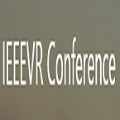Virtual Reality (VR) has emerged as a promising tool for enhancing social skills and emotional well-being in individuals with Autism Spectrum Disorder (ASD). Through a technical exploration, this study employs a multiplayer serious gaming environment within VR, engaging 34 individuals diagnosed with ASD and employing high-precision biosensors for a comprehensive view of the participants' arousal and responses during the VR sessions. Participants were subjected to a series of 3 virtual scenarios designed in collaboration with stakeholders and clinical experts to promote socio-cognitive skills and emotional regulation in a controlled and structured virtual environment. We combined the framework with wearable non-invasive sensors for bio-signal acquisition, focusing on the collection of heart rate variability, and respiratory patterns to monitor participants behaviors. Further, behavioral assessments were conducted using observation and semi-structured interviews, with the data analyzed in conjunction with physiological measures to identify correlations and explore digital-intervention efficacy. Preliminary analysis revealed significant correlations between physiological responses and behavioral outcomes, indicating the potential of physiological feedback to enhance VR-based interventions for ASD. The study demonstrated the feasibility of using real-time data to adapt virtual scenarios, suggesting a promising avenue to support personalized therapy. The integration of quantitative physiological feedback into digital platforms represents a forward step in the personalized intervention for ASD. By leveraging real-time data to adjust therapeutic content, this approach promises to enhance the efficacy and engagement of digital-based therapies.
翻译:暂无翻译



